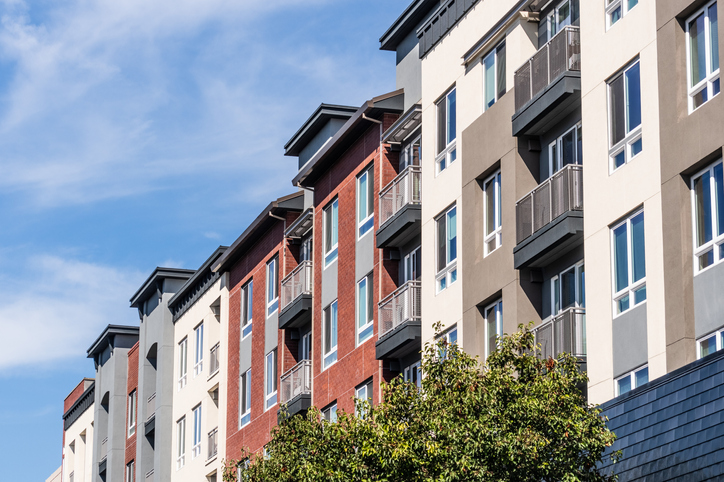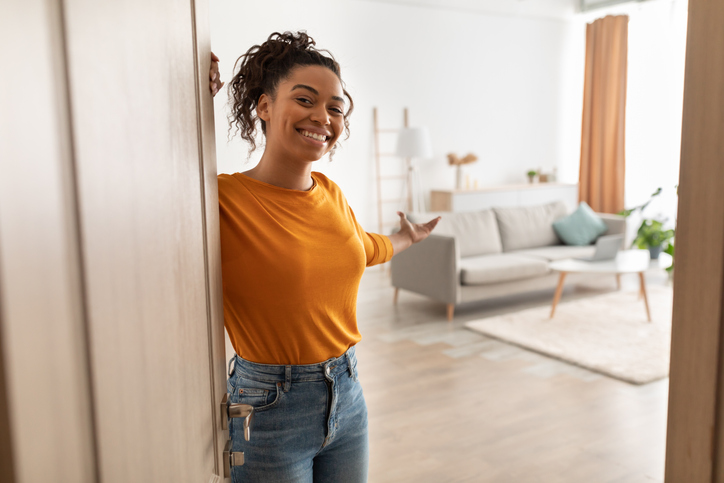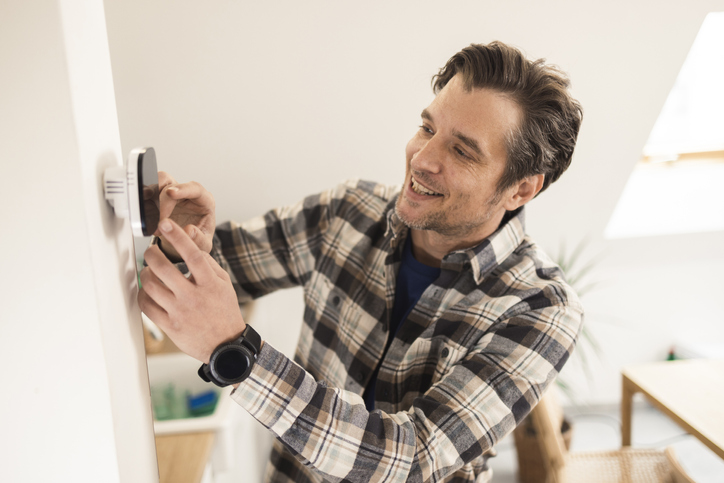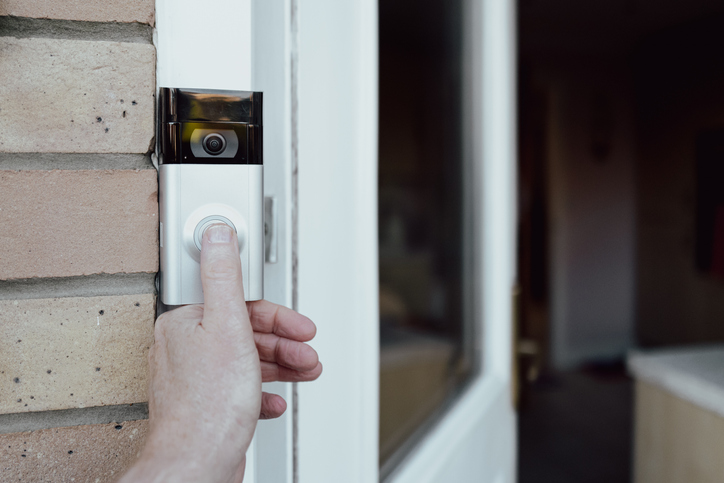As the popularity of apartment living continues to grow, so does the need for tailored solutions to address the unique home security challenges faced by apartment dwellers. Unlike traditional homes, apartments often have different layouts, limited modification options, and shared spaces, requiring a thoughtful approach to ensure the safety and protection of residents. In this article, we will explore the various aspects of home security for apartments, providing practical insights into effective strategies, renter-friendly options, and the integration of smart technology. From securing windows and doors to safeguarding package deliveries and understanding renter’s insurance coverage, our aim is to empower apartment residents with the knowledge and tools to create a secure and comfortable living environment, tailored to their specific needs.

- Top Security Concerns For Apartment Tennants
- Selecting The Right Home Security System For Apartments
- Features And Benefits Of Different Systems
- Securing Apartment Windows And Doors
- DIY And Rental-Friendly Security Measures
- Smartphone Apps For Enhancing Apartment Security
- Safeguarding Deliveries And Preventing Package Theft
- Legal Considerations For Apartment Security Measures
- Renter’s Insurance And Home Security Coverage
- Conclusion
Top Security Concerns For Apartment Tennants
Living in an apartment offers numerous advantages, such as convenience and shared amenities. However, apartment dwellers also encounter unique security challenges that must be addressed to ensure their safety and peace of mind. One of the most common security issues faced by apartment residents is the lack of control over building access. In larger apartment complexes, multiple individuals have access to common entry points like main doors and shared gates. This situation can lead to unauthorized individuals entering the building and potentially compromising security.
Another significant concern is the vulnerability of entry points, particularly for ground-floor apartments and those with accessible balconies. These apartments may be at a higher risk of break-ins due to their proximity to potential intruders. Package theft is also a growing problem in apartment buildings, especially with the rise of online shopping. Deliveries left unattended in common areas can become easy targets for thieves.
Outdated or poorly maintained locking systems in some older apartment buildings pose another security risk. Such inadequately secured doors can make it easier for intruders to force their way into apartments. Additionally, the lack of dedicated security cameras or surveillance systems in apartments means that residents may have limited visibility of common areas, leaving them unaware of potential security threats.
Shared spaces in apartment buildings, such as parking lots, laundry rooms, and fitness centers, can also be compromised if proper security measures are not in place. Addressing these security issues is crucial to ensure the safety and well-being of apartment residents, and to prevent burglary, property damage, or personal harm.
Selecting The Right Home Security System For Apartments
When it comes to apartment living, selecting the right home security system is crucial to ensure the safety and protection of residents. Unlike single-family homes, apartments have unique security requirements that demand tailored solutions. Whether it’s wireless security systems, DIY kits, apartment-friendly cameras, or all-in-one solutions, the goal is to empower residents to make the best choice for their unique security needs.
Wireless Security Systems
Wireless security systems are ideal for apartments as they do not require extensive wiring installations. These systems use wireless sensors and cameras, making them easy to install and remove without causing damage to the apartment’s structure. Additionally, wireless systems often come with mobile app integration, enabling residents to monitor their homes remotely.
DIY Security Kits
Do-it-yourself (DIY) security kits cater to apartment dwellers who seek affordable and customizable options. These kits typically include a combination of motion sensors, door/window sensors, and sometimes security cameras. DIY kits are user-friendly, allowing residents to set up the system themselves without the need for professional installation.
Apartment-Friendly Security Cameras
Some security camera models are designed with apartment living in mind. They are compact, easy to install, and can be discreetly placed to ensure privacy while maintaining optimal surveillance coverage. Many of these cameras are equipped with motion detection, night vision, and two-way audio features.
All-In-One Security Solutions
All-in-one security solutions combine various security features into a single device or hub. These systems often integrate security cameras, motion sensors, sirens, and smart home capabilities, providing comprehensive protection for apartments without cluttering the living space.
Video Doorbells
Video doorbells are becoming increasingly popular in apartment complexes. These devices function as a doorbell with a built-in camera, allowing residents to see and communicate with visitors remotely through their smartphones. Video doorbells are particularly useful for enhancing the security of apartment entrances.
Studies have shown that apartments without security systems are 85% more likely to be targeted by burglars than those with visible security measures in place. This emphasizes the importance of implementing tailored home security solutions for apartment living to deter potential intruders and create a safer living environment for residents.
Features And Benefits Of Different Systems
When choosing a home security system for an apartment, it’s essential to consider the features and benefits offered by each system.
Installation
Wireless security systems and DIY kits are easy to install without professional assistance, making them ideal for renters who may not want to make permanent modifications to their apartments. All-in-one security solutions may require more setup but often come with comprehensive features.
Surveillance Coverage
Look for security systems that offer optimal surveillance coverage for the apartment. Apartment-friendly security cameras can be discreetly placed to cover critical areas without intruding on privacy.
Mobile App Integration
Systems with mobile app integration enable residents to monitor their apartments remotely. This feature provides real-time alerts and allows for remote control of security devices. Ensure that the security system can connect to Wi-Fi or cellular networks, providing reliable communication between devices and the user’s smartphone. If desired, choose a security system that integrates with smart home platforms, allowing residents to control security devices alongside other smart devices in their apartments.
Contract And Fees
Consider the contract length and any associated fees, such as monitoring charges or additional equipment costs. Some security companies offer flexible month-to-month plans, which may be suitable for apartment dwellers. Research the reputation of the security company and the quality of their customer support and monitoring services. Reliable customer support is crucial in case of technical issues or emergencies.
Securing Apartment Windows And Doors
Securing apartment windows is of utmost importance when it comes to home security, as these openings often serve as potential entry points for intruders. To ensure the safety of apartment dwellers, several effective strategies can be employed to fortify window security. One essential measure is installing sturdy window locks on all accessible windows. Key-operated or sliding window locks can effectively thwart unauthorized access from the outside.
The use of window bars or grilles provides a visible deterrent and an added layer of protection against forced entry. These metal or strong material barriers are mounted on the inside of windows and discourage intruders from attempting a break-in. Integrating window sensors as part of a comprehensive home security system is another viable option. These sensors trigger an alarm when a window is opened, alerting residents and potentially deterring potential intruders.
For added reinforcement, consider upgrading to reinforced or laminated glass for windows, or applying security window films that make the glass more resistant to breaking and shattering. Implementing a combination of these effective strategies ensures that apartment windows are fortified against security threats, providing residents with the peace of mind they deserve in their living space.
Tips For Reinforcing Apartment Doors Without Damaging Them
Ensuring the security of apartment doors is a crucial aspect of home safety, and there are effective ways to reinforce them without causing damage. Given that most apartment dwellers cannot make permanent modifications, these tips offer practical solutions to bolster door security. One essential option is using a door security bar, which braces against the floor and doorknob to prevent forced entry. These bars are adjustable and can be easily removed without any damage to the door or frame.
Installing door reinforcement plates with longer screws is another effective method. These plates secure the doorjamb and strike the plate more firmly, making it harder for intruders to kick in the door. Adding a door chain or viewer provides an extra layer of security, allowing residents to partially open the door and see who is outside without fully exposing themselves. Upgrading the door lock to a higher-quality deadbolt lock, if permitted by the landlord, enhances the door’s resistance to picking and forced entry.
Door wedge alarms are portable devices that can be placed under the door, triggering an alarm if the door is opened, providing added security while inside the apartment. By following these tips, apartment residents can reinforce their doors effectively and improve their overall home security without damaging the rented space.
How To Secure Sliding Doors In Apartments
Securing sliding doors in apartments is crucial to ensure the safety and protection of residents, especially those with balconies or patios. These sliding doors can be vulnerable entry points if not properly secured. To enhance the security of sliding doors, several effective measures can be implemented.
One essential step is to install a security bar or dowel in the track of the sliding door when it’s closed. This simple yet effective measure prevents the door from being forced open. Another option is to use a sliding door lock, also known as a slide bolt or patio door lock, which attaches to the sliding door frame and provides additional security when engaged. Applying security window film to the glass of the sliding door is another effective technique. This film makes the glass more resistant to shattering, making it harder for intruders to break in.
Sliding door sensors can be incorporated into a home security system, providing real-time alerts if the door is opened or tampered with. For added protection, residents can utilize a patio door security bar that extends from the door frame to the floor, preventing the door from sliding open. By employing these various strategies, apartment dwellers can significantly enhance the security of their sliding doors and create a safer living environment within their apartments.
DIY And Rental-Friendly Security Measures
For renters looking to enhance the security of their apartments without breaking the bank, affordable do-it-yourself (DIY) home security options offer practical and effective solutions. These budget-friendly measures provide renters with the peace of mind they need without requiring expensive installations or long-term contracts.
Wireless security cameras are relatively inexpensive and easy to install without professional assistance. Many models come with magnetic mounts or adhesive strips, allowing renters to place them strategically to monitor key areas of their apartments.
Window and door alarms are simple yet effective devices that attach to windows and doors and emit a loud alarm when opened or tampered with. These wireless devices are easy to install and provide an added layer of security against unauthorized entry.
Installing motion-activated lights in entryways, hallways, and other vulnerable areas can deter potential intruders. These lights automatically turn on when they detect movement, providing enhanced visibility and discouraging unwanted visitors.
While not providing actual surveillance, fake security cameras and security system decals can create the illusion of a monitored property, potentially deterring criminals from targeting the apartment.
Smart plugs and timers can be used to simulate occupancy by turning lights and electronic devices on and off at predetermined intervals, giving the appearance that someone is home even when the apartment is vacant.
Renter-Friendly Security Measures That Do Not Violate Lease Agreements
When implementing security measures in rental properties, it is essential to consider renter-friendly options that do not breach lease agreements or cause damage to the property. Fortunately, there are several security measures that tenants can use without violating lease terms.
Removable window films provide the benefits of added security without permanently altering the appearance of windows. These films are easy to apply and can be removed without leaving residue or damaging the glass.
Stick-on security cameras with adhesive mounts can be used without drilling holes or causing damage to walls or surfaces. These cameras provide a viable solution for monitoring the apartment without breaching the lease terms.
Choose security system notification services that send alerts directly to the renter’s smartphone. These services do not require physical modifications to the property and allow tenants to respond promptly to security alerts.
Smartphone Apps For Enhancing Apartment Security
In today’s technologically advanced world, smartphone apps play a significant role in bolstering apartment security, offering convenient and effective ways for residents to monitor and safeguard their living spaces. With a range of specialized security apps available, apartment dwellers can enhance their home security through the following specific applications:
Ring
The Ring app is designed to work in conjunction with Ring video doorbells. It allows residents to receive instant notifications when someone rings the doorbell or when motion is detected near the entryway. Users can view live camera feeds, communicate with visitors through two-way audio, and even record videos of suspicious activities for later review.
August Smart Lock
The August app pairs with August smart lock systems, providing a seamless way to remotely control door access. Residents can lock or unlock their doors, create virtual keys for temporary access to guests or service providers, and view a log of door activity, all from their smartphones.
Nest
The Nest app is designed to work with Nest security cameras, including indoor and outdoor models. With this app, apartment residents can access live video feeds, receive motion and sound alerts, and review recorded video footage from anywhere at any time.
Citizen
Citizen is a safety alert app that keeps users informed about incidents and emergencies happening in their neighborhoods. It provides real-time updates on crime and safety issues, allowing users to stay vigilant and informed about their surroundings.
Life360
While primarily a family locator app, Life360 offers valuable safety features for apartment residents. The app allows users to create private groups with family or roommates, enabling real-time location sharing, a panic button for emergencies, and crash detection for added security during travel.
Vivint
The Vivint app is designed for users with comprehensive smart home security systems. It provides control over security cameras, smart locks, motion detectors, and more, enabling residents to manage their home security and smart devices seamlessly.
Nextdoor
Nextdoor is a neighborhood-focused social networking app that connects residents within a specific community. It fosters communication and information-sharing among neighbors, facilitating the creation of a strong and vigilant community watch for enhanced apartment security.
Safeguarding Deliveries And Preventing Package Theft
Safeguarding package deliveries in apartment complexes has become increasingly important due to the rising prevalence of package theft. To address this concern, various solutions can be implemented to ensure secure and efficient package delivery for residents.
One effective measure is the installation of parcel lockers within the apartment complex. These lockers offer individual compartments for each resident, allowing delivery carriers to securely deposit packages. Residents can access their parcels using unique codes or keys, reducing the risk of theft and providing a convenient method for package retrieval.
Another solution involves the establishment of on-site package rooms or package management centers. These designated rooms allow delivery carriers to leave packages in a secure area, accessible only to residents or through a security code.
Apartment complexes with concierge services can utilize their staff to receive and store packages on behalf of residents, ensuring safekeeping until pickup. Implementing a package notification system that alerts residents via email or text when a package is delivered can also be beneficial, enabling residents to track their deliveries and promptly retrieve them from common areas. Encouraging residents to provide specific delivery instructions, such as leaving packages with trusted neighbors or the management office, further enhances package security.
The adoption of smart lock solutions allows delivery carriers temporary access to residents’ apartments for safe and contactless package drop-offs. By incorporating these solutions, apartment complexes can significantly reduce the risk of package theft and enhance the overall security and satisfaction of their residents.
Package Lockers, Secure Drop-Off Points, And Related Options
To fortify package security in apartment complexes, package lockers, secure drop-off points, and related options offer reliable and efficient solutions. These measures ensure that residents’ deliveries are safely stored and easily accessible, even in the absence of on-site staff.
One effective option is the implementation of automated package lockers. Equipped with electronic controls, these lockers provide delivery carriers with designated compartments to deposit packages securely. Residents receive unique codes or keys, granting them convenient access to retrieve their packages at their preferred time. Smart package rooms are another viable choice, utilizing access control systems like key cards or digital passcodes to limit entry to authorized residents. This approach creates a secure central area for all package deliveries, enabling residents to receive notifications when packages arrive and pick them up during designated hours.
Some apartment complexes have partnered with Amazon to offer Amazon Hub Lockers, where residents can have their Amazon packages delivered securely. These lockers are accessed using unique codes, giving residents the flexibility to collect their packages when it suits them best.
Secure mailrooms equipped with advanced parcel management systems establish a centralized location for package deliveries, streamlining the process and ensuring packages remain protected until residents retrieve them. Some delivery services also offer remote access solutions, providing delivery carriers with temporary access codes to gated communities or apartment buildings for safe and efficient package drop-offs. Overall, these package lockers, secure drop-off points, and related options play a crucial role in mitigating package theft and enhancing the convenience and satisfaction of apartment living.
Legal Considerations For Apartment Security Measures
Installing security cameras in apartment complexes requires careful consideration of legal restrictions to ensure compliance with privacy laws and protect the rights of both tenants and visitors. While security cameras can enhance safety, they also have the potential to infringe on individuals’ privacy if not appropriately managed.
Before installing security cameras, property managers and tenants should review lease agreements to check for any clauses or provisions related to security measures and surveillance. Some leases may explicitly prohibit or regulate the installation of security cameras without prior approval from the landlord.
Seeking legal advice from professionals specializing in privacy and tenant laws can provide invaluable guidance on the legal implications of installing security cameras in apartment complexes. Legal experts can ensure that any security measures comply with local, state, and federal regulations.
To inform residents and visitors of the presence of security cameras, visible notices should be posted at all entrances and areas under surveillance. This practice not only enhances transparency but may also be required by law in certain jurisdictions.
Security cameras should be strategically placed to focus only on public areas, entrances, and common spaces. Care should be taken to avoid capturing private areas, such as windows and balconies of individual apartments, to protect residents’ privacy.
Keeping residents informed about the presence and purpose of security cameras is crucial for building trust and ensuring their cooperation. Providing written notices and conducting resident meetings can help clarify the intentions behind the security measures.
To safeguard the privacy of recorded footage, access to video recordings should be restricted to authorized personnel only. Adequate security measures should be in place to prevent unauthorized access or distribution of sensitive information.
Ensuring Compliance With Local And National Regulations
When implementing security measures in apartment complexes, it is crucial to prioritize compliance with local and national regulations to avoid legal complications and uphold the rights of residents. The legal landscape surrounding security measures and surveillance can vary significantly based on the region and jurisdiction. Therefore, thorough research of the specific laws and regulations governing the use of security cameras and surveillance systems in the given locality is imperative.
Property managers and landlords must familiarize themselves with local laws pertaining to security measures, including the installation of cameras and monitoring of public spaces. In the United States, federal laws such as the Electronic Communications Privacy Act (ECPA) and the Video Privacy Protection Act (VPPA) are particularly relevant in governing electronic surveillance and the handling of video data.
In addition to federal laws, some regions may require permits or licenses for installing security cameras or surveillance systems. Property managers should diligently check with local authorities to determine if any permits are needed and ensure they are acquired before proceeding with the installation.
Data protection and privacy laws are also of utmost importance when implementing security measures. These laws regulate the collection, storage, and handling of personal information, including video footage. Property managers should be aware of these laws and take appropriate measures to safeguard data privacy.
It is essential to provide proper training to staff members responsible for monitoring or managing security systems. They must be well-informed about data protection laws and privacy best practices to ensure responsible handling of data in accordance with the law.
Regularly reviewing security policies and measures is crucial to maintaining ongoing compliance with changing regulations and evolving privacy standards. By consistently updating and refining security practices, apartment complexes can ensure they remain within the bounds of the law while prioritizing the safety and privacy of their residents.
Renter’s Insurance And Home Security Coverage
Renter’s insurance is a vital form of protection for apartment dwellers, offering coverage for personal belongings and liability in case of accidents or unforeseen events. What many renters may not be aware of is that renter’s insurance can also extend coverage to home security equipment, providing an added layer of financial security in the event of theft or damage to the security devices.
In most standard renter’s insurance policies, personal property coverage typically includes coverage for items such as electronics, furniture, and other personal belongings. Home security equipment, such as security cameras, smart locks, motion sensors, and alarm systems, falls under this category. If these security devices are damaged or stolen due to covered perils, such as theft, vandalism, or fire, the renter’s insurance policy can provide reimbursement for the cost of repair or replacement.
Some renter’s insurance policies may also offer liability coverage for incidents related to home security. For instance, if a guest is injured on the property due to a security device malfunction or an incident caused by the security system, the renter’s insurance policy may cover medical expenses and potential legal fees, up to the policy’s liability limit.
To ensure that home security equipment is adequately covered under renter’s insurance, it is crucial for renters to review their policy carefully and, if necessary, discuss the coverage details with their insurance provider. Renters should document their security devices, including model numbers and receipts, to facilitate the claims process in case of a loss.
Conclusion
Home security for apartments requires tailored solutions to address specific challenges and ensure the safety of residents. By understanding common security concerns, exploring specialized security options, and utilizing DIY and rental-friendly measures, tenants can fortify their living spaces without violating lease agreements. Smartphone apps and smart home technology offer remote monitoring and control, adding convenience and peace of mind. Safeguarding package deliveries and complying with local regulations are crucial aspects of a secure living environment. Renters can benefit from the coverage of home security equipment through renter’s insurance, providing financial protection. Embracing these tailored solutions allows apartment dwellers to enjoy a safe and comfortable living space with confidence in their security measures.




